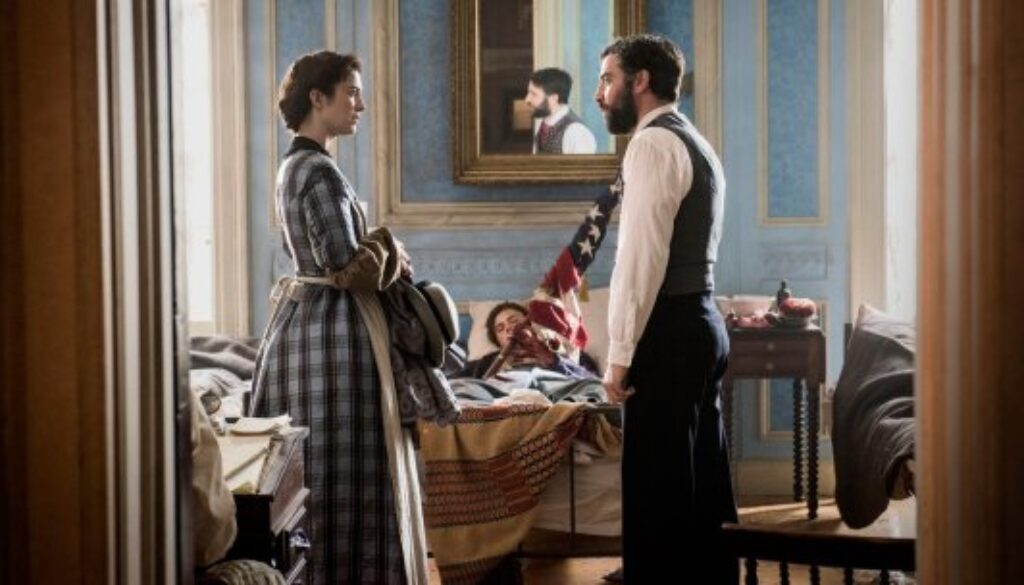‘Mercy Street’ Brings American Drama Back to PBS
(This article was originally featured on TheOuterhaven.net on Jan. 18, 2016)

Last nights’ debut of “Mercy Street” brought to life a turbulent period in American history on a network usually known for bringing the best of British period dramas. A hotel owned by Confederate sympathizers is converted into an army hospital by order of the Union forces occupying Alexandria, Virginia. The nurses and doctors struggle to treat patients with everything from fevers to missing limbs.
Mary Phinney (Mary Elizabeth Winstead) functions as the audiences’ eye into the whirlwind inside the Mansion House Hospital. She is the new head nurse intent on turning the hospital around. Her views on medicine and politics quickly cause conflicts with her coworkers and superiors. Anne Hastings (Tara Summers), a stern British nurse who prides herself on her past working with Florence Nightingale. Hastings sees Phinney as a threat to her power over subordinates. Jedidiah Foster (Josh Radnor), a surgeon from Maryland who was raised by slaveholders mocks Phinney for her progressive abolitionist views. Emma Green, a Southern belle turned volunteer nurse also believes Phinney is too biased to care for the Confederate soldiers.
Although Phinney struggles with resistance to modern medicine and women in leadership roles, she finds an ally in an unlikely place. Samuel Diggs (McKinley Belcher) is a freed black hospital worker who knows a lot more than his white superiors think. He learned about medicine from observing his former employer treating patients. Phinney recognizes his skillset and also protects him from censure from those who would not believe him. Diggs along with the escaped slave turned hospital washerwoman Aurelia (Shalita Grant) and current slave to the Green family Belinda (L. Scott Caldwell) work in a place which continues to support their continued second-class status in society.
“Mercy Street” ends a 13-year drought of original to public television American drama. The last American drama original to PBS was the made for TV movie “Our Town” starring Paul Newman, which aired on aired on “Masterpiece Theater” (rebranded and reformatted in 2008 as “Masterpiece”) in 2003. For those wondering why the hiatus existed in the first place, Rebecca Eaton offered some insight in her autobiography “Making Masterpiece.” A combination of British sponsors not willing to support original American dramas, heavily financed competition from premium and basic cable networks, and failed negotiations resulted in several projects failing to see the light of day.
Throughout the episode, the clear strong suit for “Mercy Street” is the portrayal of the medical crises of the soldiers. Although many of them die, their stories touch the hearts of the audience. Some of the patients also have PTSD in addition to physical injuries. The occasional gruesome pan shot to a patient with both legs removed reminds viewers to be thankful they live in modern times. For fans of “The Knick”, “House” and “Grey’s Anatomy” it may be too easy to find the similarities and repeated medical drama tropes. However, the depth of research and dedication to medical and historical accuracy overshadows the parallels.
Past Civil War period dramas tend to romanticize one side of the conflict and vilify the other. Based solely on the first episode, it appears “Mercy Street” is attempting to show the shades of gray morality and messy political beliefs on both sides of the war. While this style of storytelling may appeal to American history buffs, it may have the negative effect of pushing away audiences who expect the Confederates to be shown as nothing but evil. The balance may shift in future episodes, especially as the characters make decisions based solely on their political views.
As a long time viewer of “Masterpiece”, I longed for the day when I would see an original American period drama on PBS. “Mercy Street” is definitely the miniseries I was hoping for.



